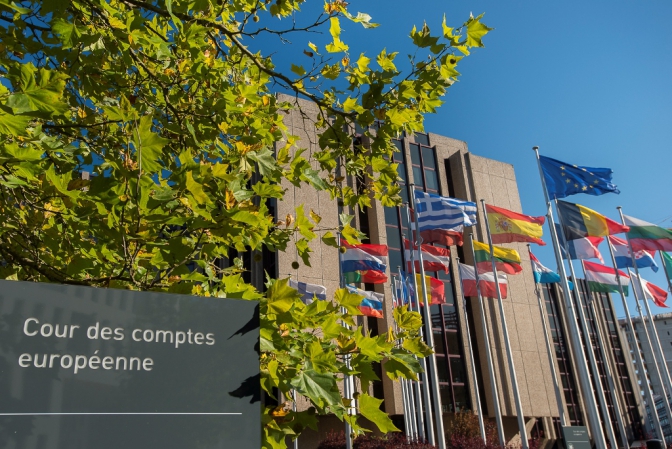Although the European Commission launched an EU Action Plan in 2016 to modernise the public sector and foster e-Government, not all digital public services are available across the EU according to a new audit report published on Tuesday by the European Court of Auditors (ECA).
“Digital public services reduce administrative burdens on citizens and businesses by making their interactions with authorities faster, easier and less costly,” said Ivana Maletić, the Croatian ECA member who led the audit.
“Actions started by the Commission, such as electronic identification, the Single Digital Gateway and the interconnection of Member States’ business registers, not only help Member States to connect their systems and exchange information, but also encourage them to accelerate changes and digitise their public services.”
The EU e-Government Action Plan (2016 – 2020) identified 25 digital actions for businesses and citizens in the EU but lacked a dedicated budget. Instead, the actions in the EU Member States were supposed to be financed by different EU programmes, totaling over €5 billion (including €3,9 billion in cohesion funding).
The auditors focused the audit on six of the 25 actions in the Action Plan that were directly related to businesses and collected empirical data from four Member States (Denmark, Germany, Poland and Romania). It also analysed a sample of 24 centrally managed EU funded projects.
The vision of the e-Government Action Plan was to have open, efficient and inclusive public administrations across the EU by 2020. The European Commission supported the implementation of e-Government solutions by Member States through EU-financed projects, by providing technical support to national authorities and by fostering collaboration between them.
The Action Plan only included actions to be implemented by the Commission. The voluntary nature of actions by Member States had already been flagged up as a significant shortcoming in a previous e-Government initiative. However, for most of the actions obligations were included in relevant legal acts.
The auditors’ analysis of the 2017 and 2020 e-Government Benchmarks showed that digital public services for business are more mature than those offered to citizens. This evolution was accelerated by the COVID-19 pandemic.The benchmarks cover in total 36 countries, including all 27 EU member states and five candidate countries.
According to the auditors, the voluntary nature of actions by member states and delays in their implementation were the main reasons why the Action Plan had difficulties in fully living up to expectations.
Some countries have advanced significantly more in the delivery of digital public services than others. However, it was impossible to determine whether progress was linked to the Action Plan or to other factors, as the existing monitoring indicators used by the Commission were not directly linked to any of the actions implemented under the Action Plan.
None of the actions included in the Action Plan concerned directly the use of e-Government to reduce corruption and it fell outside the scope of the audit.
“In general, use of digital solutions in public administration contribute to more efficient and easier use of government services, which as such is more transparent and therefore less prone to misuse,” explained ECA member Ivana Maletić.
“However, we did not look at this aspect of e-Government in our report. We focused our work on actions in the plan targeting businesses, which, if properly implemented, can boost positive changes in all other sectors. The most important message is that digital solutions must be well promoted and users must be informed about the services available.”
In recent years, e-government has become part of public administration reform in the candidate countries. What experiences did Croatia have of e-government reforms during its accession process?
“Indeed, administrative reforms, including enhanced digitalisation, have been a common denominator for a big part of EU countries for many years. In this audit, however we did not look at the implementation of e-Government reforms neither in the member states nor in the candidate countries.”
The auditors recommended that the Commission should strengthen the implementation framework to urge Member States to further develop e-Government services. To enhance awareness of businesses and citizens of digital public services available at EU level, they also recommend the development of a comprehensive promotional strategy.
In its reply, the Commission pointed out that the eGovernment Action Plan could not and was not intended to introduce new obligations for Member States but was designed to serve as a catalyst for developing digital services and e-government solutions. But it accepted the audit recommendations and, unusually, started to implement them already before the audit report was published.
A new programme, the Digital Decade Policy Programme “Path to the Digital Decade” (DDPP), was agreed between the EU institutions in July 2022. Member states will have to develop national roadmaps towards reaching the target that all key public services should be available online by 2030. A new monitoring mechanism on EU-level will also promote eGovernment services.
M. Apelblat
The Brussels Times

